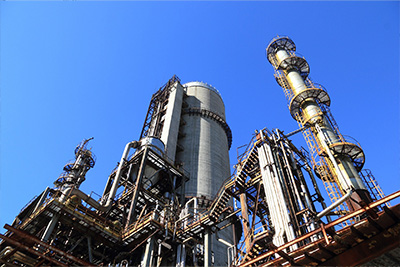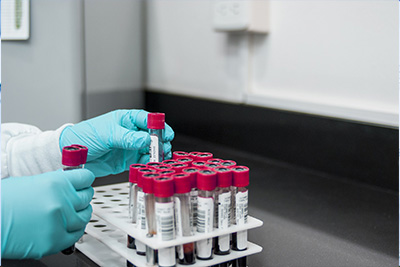-
![Advancements in Me···]() 2024-11-28 Advancements in Methyltin Mercaptide···
2024-11-28 Advancements in Methyltin Mercaptide···Recent developments in the synthesis of methyltin mercaptides have led to the discovery of improved methods that significantly enhance the purity and performance of these compounds. These advancements involve optimized reaction conditions and purification techniques, resulting in higher yields and reduced impurities. The refined processes not only increase the overall efficiency of methyltin mercaptide production but also ensure better quality, making them more suitable for various applications in industries such as coatings and electronics.
read more > -
![Environmental Impa···]() 2024-11-28 Environmental Impact Assessment of M···
2024-11-28 Environmental Impact Assessment of M···The environmental impact assessment of methyltin mercaptide (MTM) focuses on its degradation, bioaccumulation, and mitigation strategies. MTM degrades slowly in the environment, leading to potential long-term ecological risks. Studies indicate that MTM can bioaccumulate in aquatic organisms, posing threats to food chains. To mitigate these impacts, recommended strategies include strict regulation of MTM discharge into water bodies, development of advanced wastewater treatment technologies, and further research on biodegradation methods. These measures aim to minimize environmental harm and protect ecosystem health.
read more > -
![Comparative Analys···]() 2024-11-28 Comparative Analysis of Methyltin Me···
2024-11-28 Comparative Analysis of Methyltin Me···This study conducts a comparative analysis of methyltin mercaptide and other organotin compounds in polymer stabilization. The research evaluates their efficiency, toxicity levels, and environmental impact. Results indicate that methyltin mercaptide offers superior stabilization performance with lower toxicity compared to traditional organotin compounds. This makes it a more environmentally friendly option for polymer applications, highlighting its potential as a promising stabilizer in the industry.
read more > -
![The Role of Methyl···]() 2024-11-28 The Role of Methyltin Mercaptide as ···
2024-11-28 The Role of Methyltin Mercaptide as ···Methyltin mercaptide serves as an effective heat stabilizer in the manufacturing of polyvinyl chloride (PVC), enhancing its thermal stability during processing. This study explores the mechanisms through which methyltin mercaptide functions, focusing on its ability to capture free radicals and neutralize acidic byproducts. The evaluation reveals that it significantly improves PVC's resistance to thermal degradation, maintaining mechanical properties and prolonging the material's lifespan. Its efficiency is attributed to its unique molecular structure, allowing for superior interaction with PVC molecules, thus making it a preferred choice in industrial applications.
read more > -
![Reverse Ester Tin:···]() 2024-11-28 Reverse Ester Tin: Emerging Technolo···
2024-11-28 Reverse Ester Tin: Emerging Technolo···"Reverse Ester Tin" explores emerging technologies aimed at enhancing the purity and yield in ester synthesis. These advancements focus on optimizing reaction conditions, catalyst selection, and process engineering to achieve higher efficiency and product quality. The technologies discussed include novel catalysts, improved reaction protocols, and innovative purification methods. By addressing current limitations, these approaches promise to significantly boost the production of high-purity esters, with applications spanning pharmaceuticals, fragrances, and other industries.
read more > -
![Quality Control St···]() 2024-11-28 Quality Control Standards in Reverse···
2024-11-28 Quality Control Standards in Reverse···The manufacturing process of reverse ester tin involves stringent quality control standards to ensure product consistency and reliability. These standards encompass raw material verification, precise reaction conditions, and thorough post-reaction analysis. Key parameters include the purity of starting materials, controlled temperature and pressure during synthesis, and rigorous testing for impurities and desired product yield. Compliance with these standards is crucial for producing high-quality reverse ester tin that meets industry specifications and customer expectations.
read more > -
![Efficient Separati···]() 2024-11-28 Efficient Separation Techniques in R···
2024-11-28 Efficient Separation Techniques in R···Reverse esterification is a crucial step in the production of tin esters, but the separation of these esters from the reaction mixture can be challenging. This study explores various efficient separation techniques including solvent extraction, distillation, and membrane filtration. Solvent extraction proved effective for initial purification, while vacuum distillation was found to be highly efficient for isolating pure esters at reduced pressure. Membrane filtration was utilized to remove residual impurities and achieve higher purity levels. The combination of these methods significantly improved the overall yield and quality of the final product, offering a scalable solution for industrial applications.
read more > -
![Reverse Ester Tin ···]() 2024-11-28 Reverse Ester Tin Supply Chain Chall···
2024-11-28 Reverse Ester Tin Supply Chain Chall···The reverse ester tin supply chain faces significant challenges due to fluctuations in raw material availability, inconsistent demand patterns, and logistical complexities. These issues lead to production delays and increased costs. To address these problems, companies are implementing advanced demand forecasting tools, diversifying suppliers, and enhancing inventory management systems. Additionally, investing in robust logistics networks and adopting digital technologies for real-time tracking can improve overall efficiency and reliability. These strategies aim to stabilize the supply chain, ensuring a consistent flow of materials and reducing operational disruptions.
read more > -
![How Tin Catalysts ···]() 2024-11-28 How Tin Catalysts are Transforming t···
2024-11-28 How Tin Catalysts are Transforming t···Tin catalysts are revolutionizing the esterification industry by significantly improving reaction efficiency and selectivity. These catalysts, known for their mild activation conditions, enable faster and more cost-effective production processes. Their unique properties make them particularly effective in the synthesis of various esters, which are crucial components in industries ranging from pharmaceuticals to food additives. By reducing side reactions and waste, tin catalysts contribute to more sustainable manufacturing practices, making them an indispensable tool in modern esterification processes.
read more >






